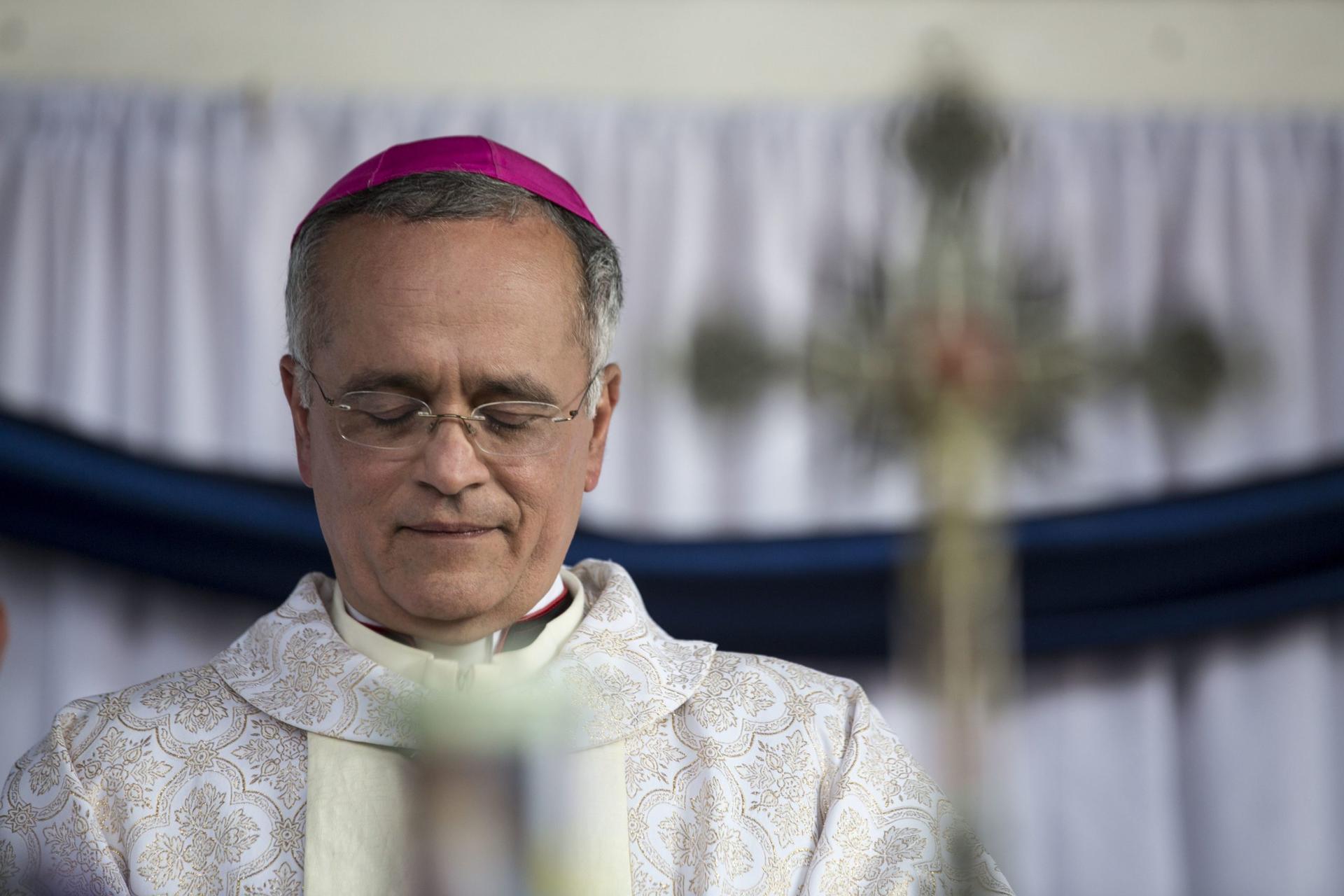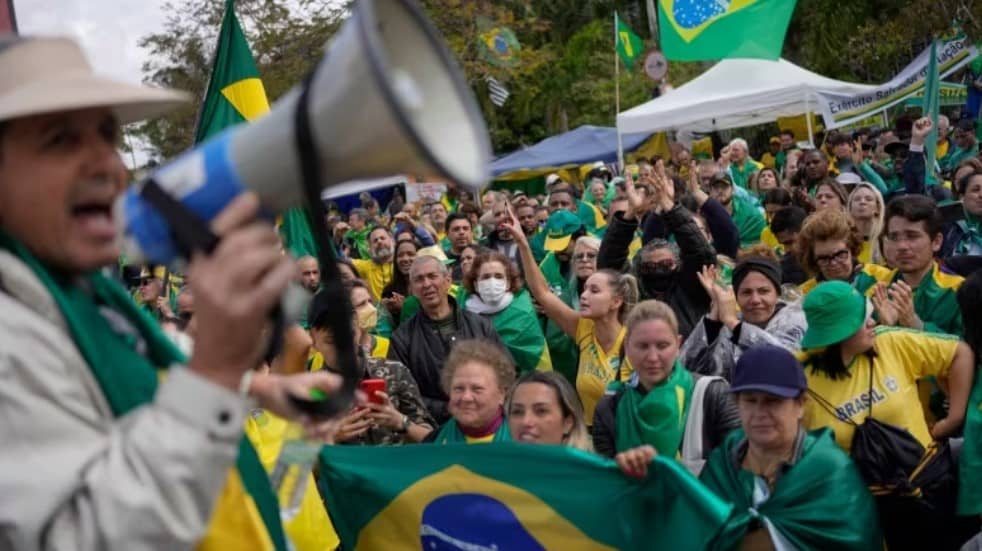MANAGUA, Nicaragua — The auxiliary bishop of Nicaragua’s capital, a vocal critic of the government of President Daniel Ortega, urged Nicaraguans to “fight for freedom” Sunday, in a final message before being transferred to Rome at the request of Pope Francis.
Silvio Báez drew parallels between the trials of Jesus Christ and the struggle of opposition groups in Nicaragua.
“We cannot forget nor be indifferent to today’s crucified victims: the political prisoners, the exiles, those who still hide in fear, the mothers who mourn those killed by repression,” he said to cheers at a parish in southeastern Managua.
At least 325 people have died during clashes between civilians and government forces in Nicaragua during the past year, while more than 52,000 people have fled the country, according to the Inter-American Commission on Human Rights. Opponents of Ortega have said more than 640 people were being held for political reasons after being jailed in anti-government protests that broke out a year ago. Ortega officials say the actual number is far smaller.
Báez has received multiple death threats over the past year, and he suffered a cut on his arm when he and other church officials were attacked by a pro-government mob in the town of Diriamba. Drones hover over his home, and men on motorcycles have entered the parking area. He has had to change his phone number four times because of the threats.
Francis recently told Báez that he is needed in Rome but didn’t say whether the decision was related to an alleged assassination plot, which Báez has said the U.S. government warned him of several months ago. The announcement of his indefinite transfer has shaken opponents of Ortega.
The bishop participated as a mediator in the short-lived first round of dialogue between the government and opposition last year. Ortega, who had invited the Church to mediate, later blasted the bishops, accusing them of being coup plotters.
When another round of talks was attempted this year, Báez was not invited to participate. The Church withdrew from the talks April 3.
The 60-year-old bishop said at the start of Mass on Sunday that he did not request to leave Nicaragua and that its people will remain in his prayers from the Vatican.
“Our people are a crucified people, but we will resurrect to be a society based on justice, where it is not a crime to think differently,” Báez said, adding that “God is on the side of the victim, not the executioner.”
Several people at the Mass waved Nicaraguan flags while chanting support for Báez.















